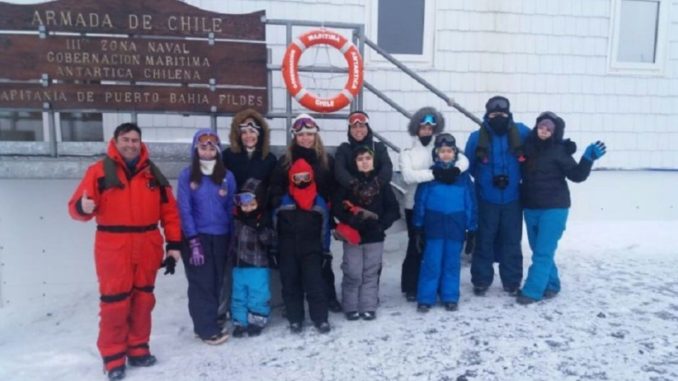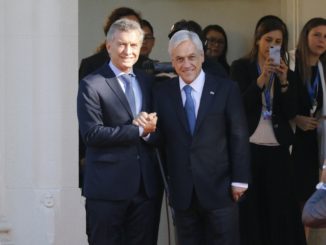
SANTIAGO – The deterioration of the main Chilean settlement in the Antarctic caused the closure of the F-50 School in Villa Las Estrellas after 33 years of operation, during which it helped to train more than 300 children.
As reported by El Mercurio de Santiago, the school was waiting for funds to improve the facilities of the educational center on Isla Rey Jorge, 1,233 kilometers south of Punta Arenas. Villa Las Estrellas is the area where the families of the Air Force officers that make up the Antarctic base Eduardo Frei Montalva reside.
“There is a feeling of nostalgia, because we are the southernmost school in Chile,” says Professor Christian Crisóstomo, who returned to the American continent with his wife, Fernanda Quijada, with whom he was in charge of the five students – from 6 to 12 years of age – of the 2018 generation. Very different from the previous decades, this year the change in the endowment of the Frei base only included families without children and single officials.
The commander-in-chief of the FACh, General Jorge Robles, states that the opening of the Teniente Marsh airfield, in 1980, greatly improved the connectivity with the Antarctic, to such an extent that the bases of the Chilean territory went from 18 to 43, with 22 countries different.
“We are very concerned about supporting connectivity and scientific work, but we forget the house. And time passed the bill,” says Robles. “Of course (it’s not pleasant to restrict the children), but you had to make this decision,” he adds. Now the FACh is working on a plan that will be submitted to the Ministry of Defense to seek funds that allow restructuring of the base, its habitability, wastewater and energy.
What you want to achieve is to recover the infrastructure -including the school – “to hopefully continue another 50 years in Antarctica”, says Robles. In the midst of great snowfalls, intense winds and temperatures of up to 15 degrees below zero, the latest generation of Chilean children in Villa Estrellas was distributed in classes from first to third grade, while the older student, Sofía Castro (12), received personalized classes. In physical education, music and art they shared together.–MercoPress



